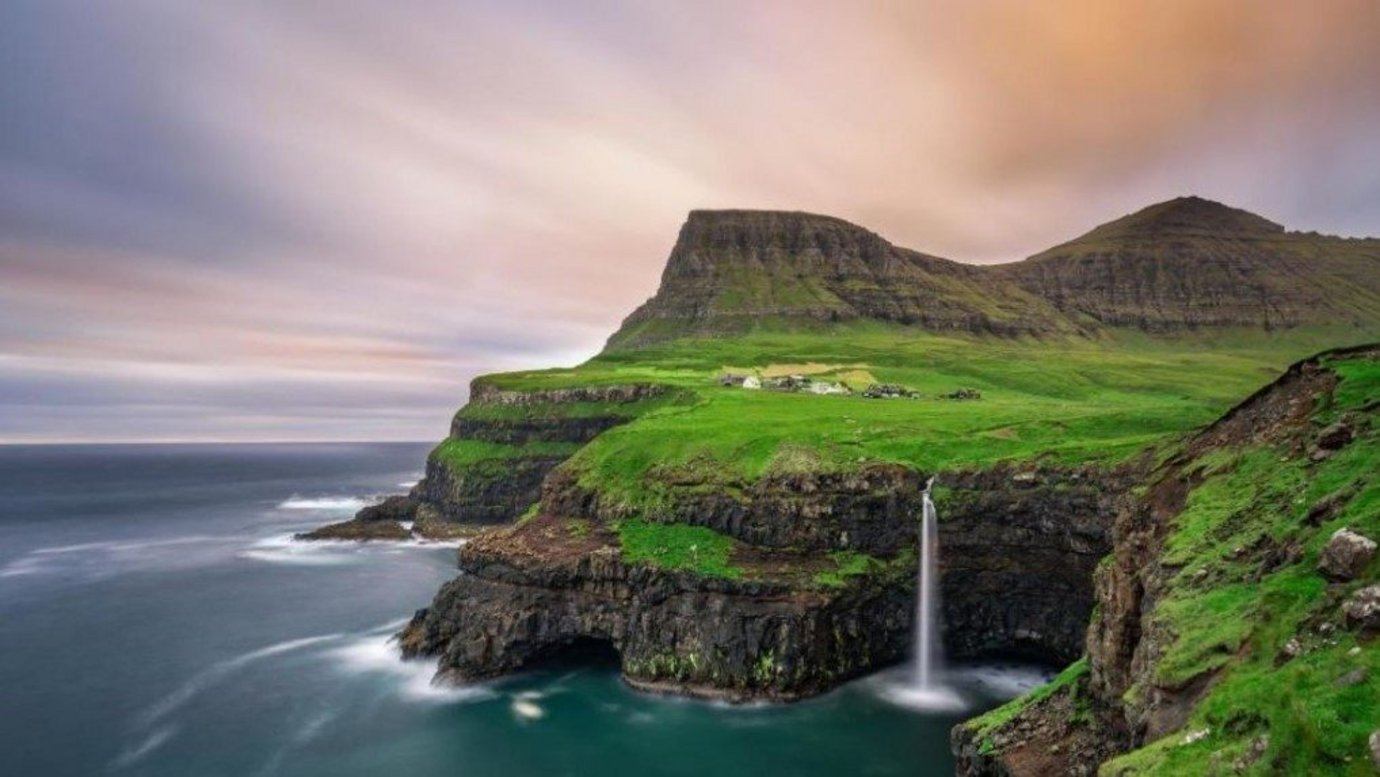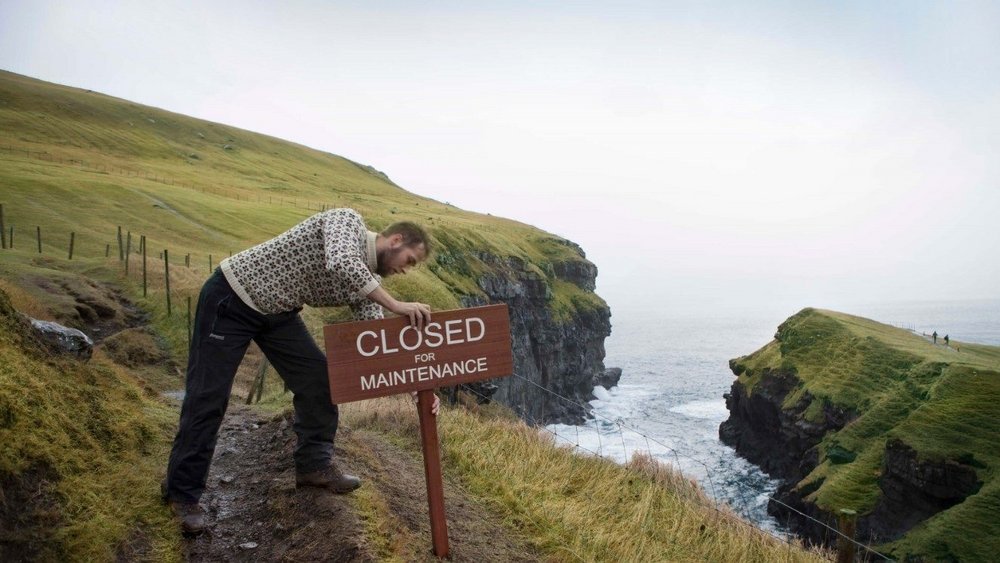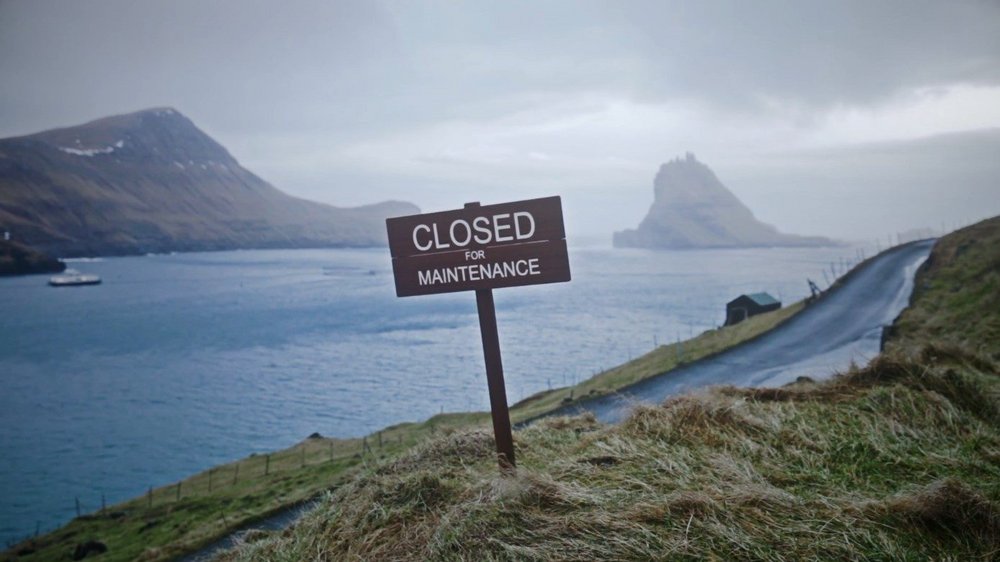Campaign of the Week
Visit Faroe Islands, Closed for Maintenance /
Island archipelago tourism board closes its country temporarily to promote tourism and sustainability

This story originally appeared on Contagious I/O, our online intelligence tool. To find out more click here.
The Faroe Islands will be closed to visitors for one weekend in April ‘for maintenance’.
From 26 to 28 April, locals on the 18-island archipelago will be working on conservation projects and, as the local tourism board Visit Faroe Islands explained on the campaign website, ‘delivering a touch of TLC to the Faroese countryside to ready it for visitors in 2019.’
The islands have invited 100 tourist volunteers to help with this project. Volunteers will maintain and create walking paths, construct viewpoints and put up signage to help with wayfinding. All participants will be given accommodation and food over the four-day, three-night period and, on the final night, there will be a celebratory meal.
The project was announced with an online video, which explained the rationale behind it, what volunteers would be doing and also included an official statement from the Faroes' prime minister Aksel Johannesen.
To register to participate, volunteers had to sign up via the campaign’s website and buy flights through 62N, the official travel agency partner of the Faroe Islands.

Since the launch of the Closed for Maintenance campaign in February this year, thousands of volunteers have signed up to help from all over the world, prompting Visit Faroe Islands to respond: ‘We’re positively overwhelmed – a huge thank you to all who have shown an interest.’

While some of the Faroe Island’s major tourism sights and attractions will be closed over the April weekend, hotels will be open and flights will continue uninterrupted.
‘For us, tourism is not all about numbers,’ Guðrið Højgaard, Director at Visit Faroe Islands, said to CNN Travel. ‘We welcome visitors to the islands each year, but we also have a responsibility to our community and to our beautiful environment, and our aim is to preserve and protect the islands, ensuring sustainable and responsible growth.’
Contagious Insight /
Scarcity principle / The campaign works well as a publicity stunt and will generate some positive earned media for the Faroe Islands, but it also taps into the scarcity principle, which psychologist Robert Cialdini explains in his book Influence. At its heart, the scarcity principle means that the rarer or more difficult to obtain a product or opportunity is, the more perceived value it has. Many people have probably never considered visiting the Faroe Islands, but by closing the country’s doors to all but a very limited number of volunteers, the islands' tourist board has prompted thousands of people to think about the islands and boosted their desire to visit.
The sustainability aspect of the volunteer clean-up project is likely to appeal to the rising number of environmentally conscious tourists. According to a 2016 study by Sustainable Travel International and Mandala Research, 63% of all travellers say they are much more likely to consider destinations where there is a strong effort to conserve and protect natural resources. The same survey suggests that so-called ‘eco tourists’ tend to stay longer and spend more. And from 2013 to 2016, 60% of US travellers reported taking a ‘sustainable’ trip and said they had a responsibility to make sure they do not cause harm to a destination.
Many travellers also want to experience and live like a local, which Visit Faroe Islands' clean-up campaign enables them to do while being useful at the same time. We’ve seen other travel and tourism campaigns that tap into this live like a local trend. Airbnb, for example, based its entire Don’t Go There, Live There campaign around it, and Sir Hotels created a programme of unique experiences run by locals in the areas surrounding its hotels.
The CEO of hotel chain AccorLocal, Scott Gordon, recently told Contagious in an interview: ‘Local is truly booming around the world right now. People don’t want to consume less, they want to consume more responsibly. They want to know their local baker, flower artist, winemaker.’
Responsible tourism / This campaign is happening at a time when many popular tourist destinations are worrying about ‘overtourism’ and all its associated problems. The increasing quantity of visitors to some destinations has led to environmental degradation, deteriorating infrastructure, diminishing travel experiences and the dilapidation of heritage sites – all of which negativity impacts residents and the long-term future of the area. This has prompted some governments and tourism boards to act – as we saw in last year’s highly acclaimed Palau Pledge campaign and a more recent campaign from the Jackson Hole Travel & Tourism board.
As Elizabeth Becker, author of Overbooked: The Exploding Business of Travel and Tourism, writes: ‘Travel and tourism has become a behemoth, capable of doing great good and great damage.’
In recent years, the Faroe Islands have seen an estimated 10% increase in tourism. The island’s pristine cliffs, waterfalls and wildlife attract around 100,000 visitors per year. And while this may be good for the hospitality trade, certain picturesque spots have taken a toll, which annoyed locals and will impact the islands' tourism prospects in the long term. Therefore, this campaign is as much about getting Faroese people behind tourism as it is about getting tourists to do something useful when they visit.
The Contagious I/O intelligence tool is constantly updated with case studies, in-depth strategy interviews, stories about new technologies and trend reports. If you would like to find out more about how you can get access to this resource, click here.
Want more of the same? /
We don’t just write about best-in-class campaigns, interviews and trends. Our Members also receive access to briefings, online training, webinars, live events and much more.






